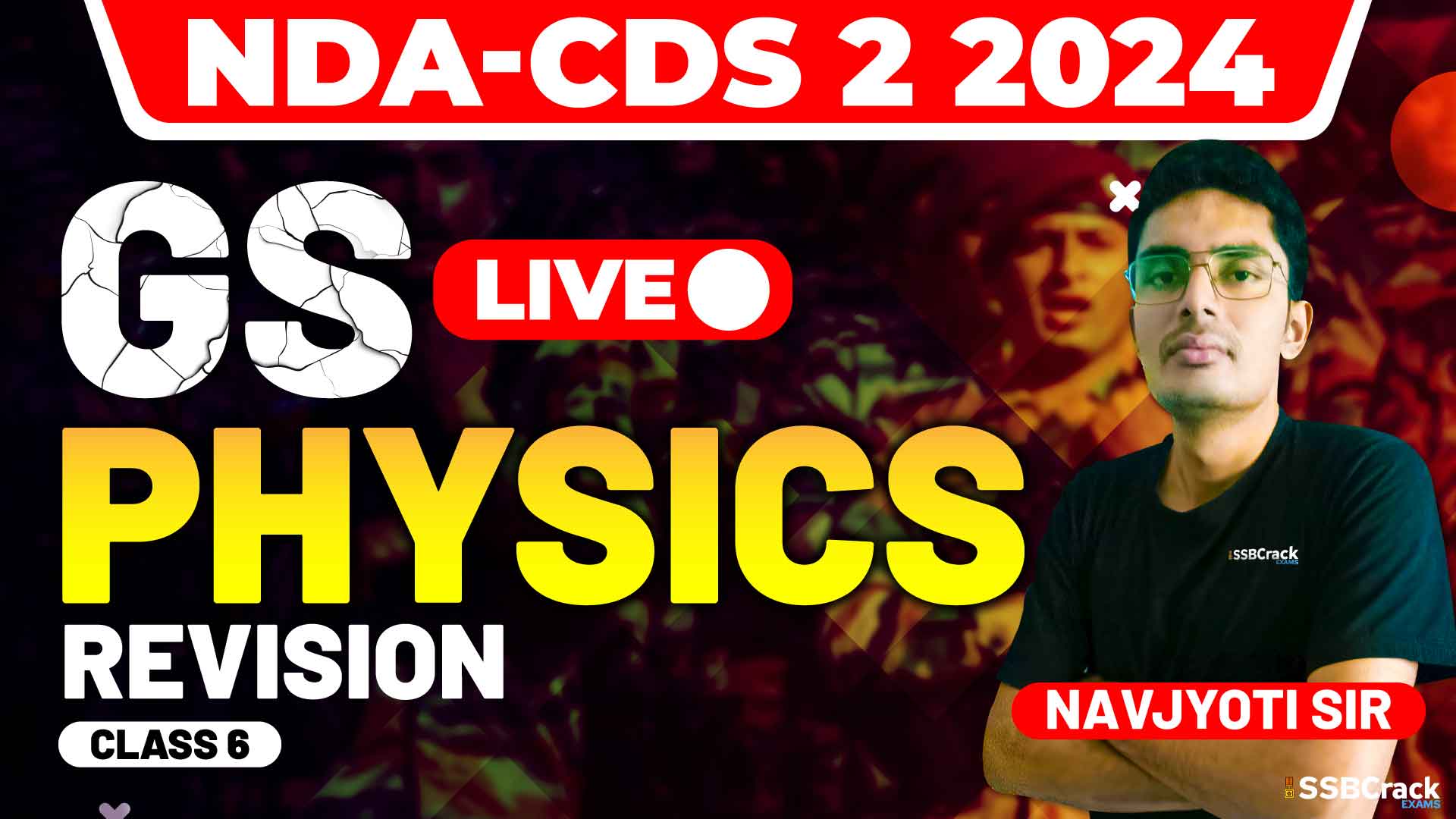In the preparation for competitive exams like NDA and CDS, mastering the concepts of Electricity and Magnetism is crucial. These topics form a significant portion of the physics syllabus and often present themselves in the form of multiple-choice questions (MCQs). The challenge lies not just in understanding the theoretical aspects but also in applying them effectively to solve problems within a limited time.
This article will delve into the key areas covered in the revision class on Electricity and Magnetism, offering insights into the important concepts and providing strategies to tackle MCQs on these topics.
Electricity and Magnetism: Core Concepts
Electricity and Magnetism are interconnected areas of physics that deal with the behavior of electric charges, fields, and currents, as well as their interaction with magnetic fields. Below are the primary sub-topics you need to focus on:
Electric Charge and Field
- Electric Charge: Understanding the nature of charge, Coulomb’s law, and the principle of superposition is foundational.
- Electric Field: Grasping the concept of electric field lines, field due to point charges, and the behavior of charges in an electric field.
Electric Potential and Capacitance
- Electric Potential: Learn about potential difference, equipotential surfaces, and the relationship between electric field and potential.
- Capacitance: Focus on the concept of capacitors, energy stored in capacitors, and the effects of dielectrics.
Current Electricity
- Ohm’s Law: A fundamental law describing the relationship between voltage, current, and resistance.
- Kirchhoff’s Laws: Essential for solving complex circuits involving multiple loops and junctions.
- Electrical Power: Understanding the power dissipated in resistors and the concepts of series and parallel combinations.
Magnetic Effects of Current
- Biot-Savart Law: Learn how to calculate the magnetic field due to a current-carrying conductor.
- Ampere’s Law: Useful for determining the magnetic field in symmetric situations.
- Force on a Current-Carrying Conductor: Explore the Lorentz force, which is crucial in understanding the interaction between electric currents and magnetic fields.
Electromagnetic Induction
- Faraday’s Laws: These laws form the basis of electromagnetic induction, which explains how a changing magnetic field can induce an electric current.
Strategies for Solving MCQs on Electricity and Magnetism
Given the vastness of the topics, it is vital to approach MCQs with a well-thought-out strategy:
Conceptual Clarity
- Strong Foundation: Ensure you have a clear understanding of the basic concepts before moving to complex problems.
- Avoid Memorization: Focus on understanding rather than rote learning. Most MCQs test your ability to apply concepts.
Practice with Variety
- Diverse Problems: Practice a wide range of problems. Include questions that involve direct application of formulas as well as those that require deeper conceptual thinking.
- Time Management: Solve problems under timed conditions to improve your speed and accuracy.
Use of Diagrams
- Visualize the Problem: Often, drawing a diagram or visualizing the situation helps in understanding the problem better and avoiding mistakes.
- Field Lines and Circuits: For questions on electric fields, magnetic fields, and circuits, a quick sketch can clarify the relationships between different elements.
Logical Elimination
- Eliminate Wrong Answers: In MCQs, eliminate options that are clearly incorrect to improve your chances if you need to guess.
- Check Units: Ensure the units in your answer match the required units in the question; this can often help in eliminating incorrect choices.
Attention to Detail
- Read Carefully: Pay attention to the wording of the question, especially terms like “not,” “except,” and “only.”
- Check for Extremes: In questions involving ranges, boundary conditions or extreme values often provide hints to the correct answer.
Regular Revision
- Consistent Review: Regularly revisit important formulas and concepts. This not only helps in retention but also in recognizing the right approach quickly during the exam.
- Mock Tests: Take full-length mock tests to simulate exam conditions and identify areas that need improvement.
Preparing for the Exam: A Holistic Approach
Focus on Weak Areas
Identify the topics you are less confident in and allocate extra time for them. Use multiple resources like textbooks, online tutorials, and practice papers to strengthen these areas.
Balanced Preparation
While focusing on Electricity and Magnetism, do not neglect other topics. Ensure that your preparation is balanced across the entire physics syllabus.
Stay Updated with Exam Patterns
Familiarize yourself with the latest exam pattern and the types of questions asked. This will help you tailor your preparation strategy effectively.
Healthy Study Routine
Maintain a healthy study routine with regular breaks. Avoid last-minute cramming, as it can lead to stress and confusion.
Confidence and Calmness
Lastly, approach the exam with confidence. A calm and composed mind can greatly enhance your performance.
Conclusion
Mastering Electricity and Magnetism for NDA and CDS requires a blend of conceptual understanding, consistent practice, and strategic problem-solving. By focusing on the key concepts and following the strategies outlined above, you can boost your chances of scoring well in the physics section of these competitive exams. Remember, practice makes perfect, and with the right approach, you can tackle even the most challenging questions with ease.







